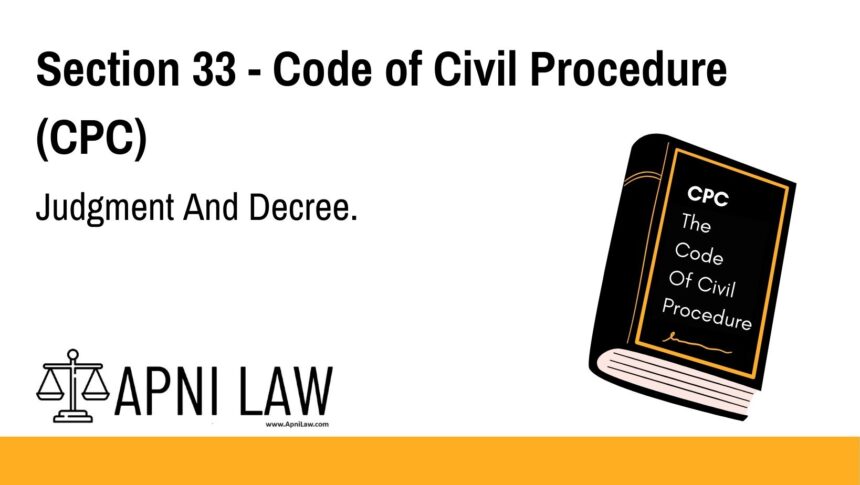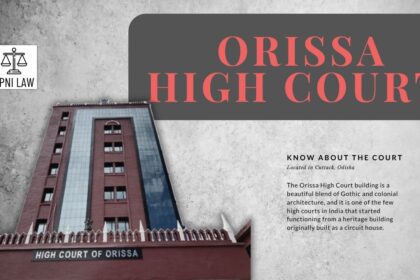Code
CPC 33 The Court, after the case has been heard, shall pronounce judgment, and
on such judgment a decree shall follow.
Great 👍 Let’s draft the SEO-optimized structured article for Section 33 CPC – Judgment and Decree in the same ApniLaw format with clickable internal links.
Section 33 CPC: Judgment and Decree
Code
Section 33 – Code of Civil Procedure
The Court, after the case has been heard, shall pronounce judgment, and on such judgment a decree shall follow.
📖 Source: Section 33 CPC – Judgment and Decree (ApniLaw)
Explanation
Section 33 CPC lays down a fundamental principle of civil procedure:
- Once a case is fully heard, the Court must pronounce its judgment.
- Based on this judgment, a decree automatically follows.
Key Points:
- Judgment: The statement by the judge containing the grounds of decision.
- Decree: The formal expression of the adjudication conclusively determining rights of parties (defined in Section 2(2) CPC).
- The decree is drawn from the judgment and is enforceable under execution proceedings (see Section 36 CPC).
Thus, Section 33 establishes the link between hearing → judgment → decree.
Illustrations
- Example 1: Money Suit
A plaintiff sues for ₹1,00,000. After hearing, the Court pronounces judgment in his favour. A decree is then prepared granting recovery of ₹1,00,000. - Example 2: Dismissal of Suit
If the Court pronounces judgment dismissing the plaintiff’s claim, a decree of dismissal follows. - Example 3: Partition Suit
In a family property partition, once judgment declares the respective shares, a preliminary decree follows, later leading to a final decree upon actual division.
Common Questions and Answers
1. What is the difference between judgment and decree under CPC?
- Judgment: Reasoning of the Court.
- Decree: Formal expression of the decision based on the judgment.
2. Does every judgment result in a decree?
Yes. Section 33 CPC makes it mandatory that a decree shall follow the judgment.
3. Can there be a decree without a judgment?
No. A decree must be based on a judgment. Without a judgment, a decree has no legal basis.
4. What types of decrees can follow a judgment?
- Preliminary decree (e.g., in partition suits)
- Final decree (after complete adjudication)
- Partly preliminary and partly final decree
5. How is a decree executed?
A decree is executed through the procedures provided in Order XXI CPC and Section 36 CPC.
Conclusion
Section 33 CPC forms the foundation of civil adjudication. It mandates that after hearing, a judgment must be delivered, and a decree must follow. This ensures that every decision of the Court is formalized into an enforceable decree, safeguarding the rights of litigants.
👉 For more details, visit: Section 33 CPC – Judgment and Decree (ApniLaw).








